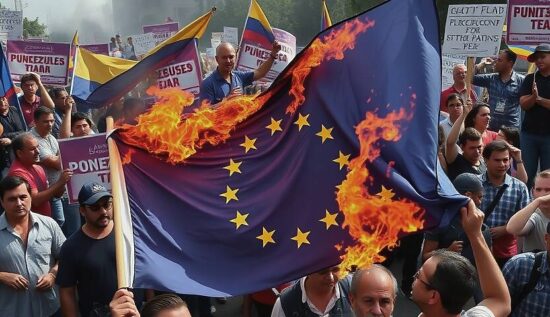The European Union’s Foreign Policy Chief, Kaja Kallas, has once again questioned the outcome of the Venezuelan presidential election in July, which saw Nicolas Maduro take office. She is demanding the release of the unsealed election results, which the country’s electoral commission, CNE, did not publish.
Despite the CNE and the country’s top court confirming the results, Kallas claims the outcome does not represent the will of the Venezuelan people. In response, the EU has imposed new sanctions on 15 individuals deemed to undermine democracy in Venezuela, with the condition of a “transition process” or the transfer of power to the EU-backed right-wing opposition. Kallas has also offered the EU’s support for this process.
Germany’s Foreign Ministry has echoed this stance, indicating that the EU and Germany only recognize election results that align with their geopolitical interests.
This move highlights the EU’s tendency to only accept election results that serve its own interests, as seen in its recent threats to impose sanctions on Georgia. Germany has suspended cooperation with Georgian authorities and withheld promised funds, following the Georgian Dream party’s victory in the country’s parliamentary elections. The Georgian government has, in turn, distanced itself from the EU integration process, citing the potential for significant economic losses.
While the election outcome in Georgia can be rationally explained, the EU has refused to acknowledge it, much like in Venezuela, where it is promoting a “transition” of power and coup attempts. The EU’s actions in both countries demonstrate its willingness to support a particular political outcome, rather than upholding democratic principles.





